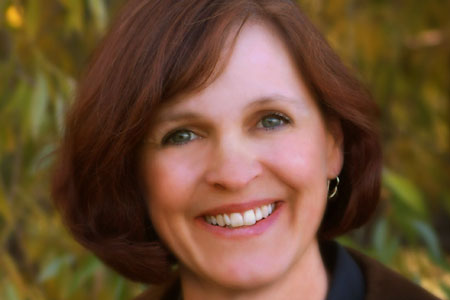Ploughshares runs for 40 years
Ploughshares, Emerson College’s award-winning literary journal, turns 40 this fall and a star-studded fundraiser—hosted by comic and author Denis Leary ’79—is in the planning stages. The celebration will feature readings from the Ploughshares archive by award-winning journalist and best-selling author Sebastian Junger (The Perfect Storm), acclaimed novelist Andre Dubus III (House of Sand and Fog), best-selling novelists Alice Hoffman and Sue Miller, and world-class chef Ming Tsai, as well as other local celebrities.
Known as a beacon for talented new writers as well as the publisher of a good deal of contemporary American literature, Ploughshares was recently recognized in Every Writer’s Resource as No. 2 of the top 50 literary magazines, trailing just behind The New Yorker.
Ladette Randolph took the helm as editor-in-chief of Ploughshares in 2008. Previously, she was a book editor at the University of Nebraska Press for 10 years. While at Nebraska, she acquired more than 300 books, many of them going on to win awards and critical acclaim. She is herself an award-winning novelist and short story writer. Under her leadership, Ploughshares remains a literary gem. The website lists each issue published over the last four decades, and provides details such as photos of guest editors, tables of content, and in some cases, excerpts from issues. In the following Q & A, Randolph talked about the history of Ploughshares, its present, and its future.

Who founded Ploughshares? And what’s the story behind its founding?
DeWitt Henry [in 1971 a recent Ph.D. graduate from Harvard; today, an Emerson professor] and Peter O’Malley, co-owner of the Plough and Stars bar in Cambridge and an Irish ex-pat, were the two most involved in the beginning. They were part of a coterie of writers who met regularly at the Plough in those early days, among them Bowery poets, White Mountain poets, Harvard grads, and Irish ex-pats who, accustomed to the great literary bars in Ireland, especially enjoyed these spirited debates. They argued about the future of literature and what mattered most in contemporary literature. While it isn’t unusual for writers to argue about literature, what was unusual was that they took that argument into the pages of a journal. From its very beginning, Ploughshares has been committed to providing a platform for as much diversity of taste as possible, hence the guest editor policy.
What is the editor-in-chief’s role at Ploughshares?
We receive over 11,000 submissions a year, roughly half poetry and half prose. Each guest editor directly solicits 90 pages for his or her issue but must choose the remaining 90 pages from Ploughshares’ submissions. Our staff works hard to read through every submission (we have a large staff of volunteer readers made up mostly of current students and recent grads from the MFA program at Emerson) before winnowing those submissions into a shortlist for each guest editor. In addition to selecting the guest editors, the editor-in-chief works closely with the editorial staff, oversees budgetary and other administrative duties required of a large magazine, and plays a public role in the literary community of Boston. In addition, I teach one class a year in the Writing, Literature and Publishing department at Emerson, judge contests, sit on literature and publishing panels, take part in writing conferences, and travel extensively throughout the country to colleges and literary events on behalf of the magazine.
Has Ploughshares always worked in collaboration with Emerson College?
No. It was independent for 17 years before joining Emerson. DeWitt Henry was a professor at Emerson. James Randall, one of the magazine’s early supporters, was also on the faculty at Emerson. Although the magazine was housed at the College since 1988 and the editor’s salary paid by the College, it wasn’t until 2008, however, that it was fully merged with Emerson.
Who are some notable writers/poets that launched their careers through Ploughshares?
There are many notables who have published in the journal through the years. Those most notable for having published their first work (or very early in their career) are Sue Miller, Tim O’Brien, Jayne Anne Phillips, Robert Pinsky, and Edward P. Jones, among others.
Who are some of the notable writers expected to be in attendance at your 40th year celebration?
In addition to the celebrity writers who will be taking part in the fundraiser, we hope to see many local writers at a reception on campus in late September to celebrate the Fall 2011 issue of the magazine (guest-edited by DeWitt Henry). In addition to DeWitt, poet Joyce Peseroff will be speaking, and we hope long time editor, Don Lee, will return to speak as well. In addition to the many fine writers in Emerson’s WLP department, I hope to see at this event other writers still living in the Boston area who have a long history with the magazine, including Lexa Marshall, Jim Carroll, Ann Bernays, Justin Kaplan, Frank Bidart, Margot Lockwood, Fannie Howe, and too many others to name here.
Will Ploughshares ever change its guest editorship model?
We hope to modify the policy in the future in a way that allows our own distinguished editorial staff to edit one issue per year. John Skoyles, our poetry editor, is a published poet and memoirist and has been a longtime professor of poetry at Emerson. Margot Livesey, acclaimed novelist, short story writer and writer-in-residence at Emerson, is our fiction editor. And I am an award-winning novelist, short story writer, editor, and teacher at Emerson.
Photo Credit: Tami Turnbull
Categories